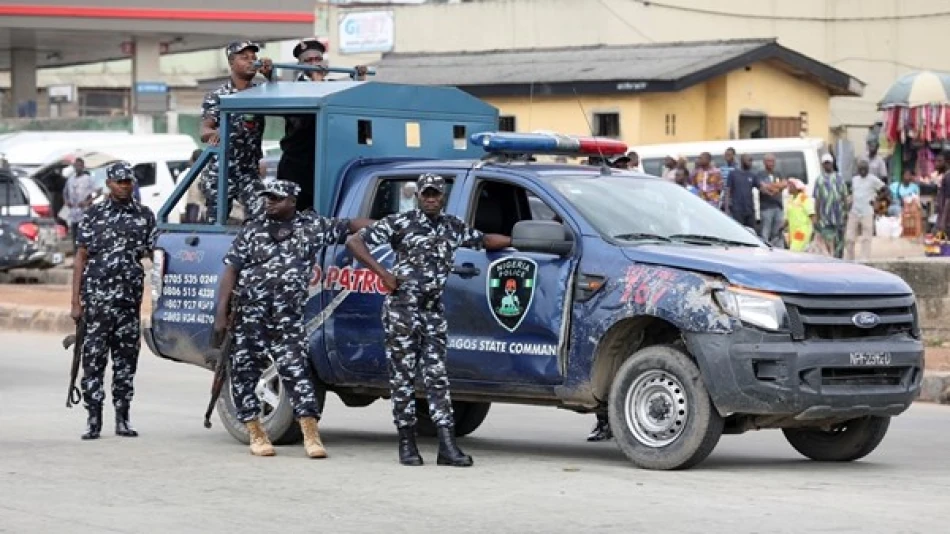
Deadly Attack Leaves 50 Dead in Nigeria: Terror Strikes Heartland
Nigeria's Northwest Descends Further Into Chaos as Mosque Attack Claims 50 Lives
A devastating assault on a mosque and surrounding homes in Nigeria's Katsina State has left at least 50 people dead and 60 others kidnapped, marking another grim milestone in the country's escalating security crisis. The coordinated attack on the remote town of Ungwan Mantau underscores how armed groups continue to operate with near-impunity across Nigeria's northwestern region, despite government promises to restore order.
The Attack: A Blueprint of Terror
Gunmen arrived on motorcycles—a signature tactic of criminal groups operating in Nigeria's northwest—and opened fire inside the mosque before spreading throughout the village. The attackers set multiple homes ablaze before security forces could respond to the remote location. While police managed to intercept some assailants and thwart planned attacks on two additional villages, the damage was already catastrophic.
The choice of target—a mosque during what was likely prayer time—reflects the increasingly brazen nature of these attacks, where sacred spaces offer no sanctuary from violence.
A Region Under Siege
Katsina's Strategic Importance
Katsina State holds particular significance as the home state of former President Muhammadu Buhari, whose eight-year tenure was marked by persistent security challenges. The state borders Niger Republic, creating porous boundaries that armed groups exploit for cross-border operations and safe havens.
The region has become a corridor of violence where multiple criminal enterprises overlap: cattle rustling, mass kidnapping for ransom, and banditry targeting rural communities. These groups have evolved from opportunistic criminals into well-organized militias capable of challenging state authority.
The Economics of Insecurity
Northwest Nigeria's security crisis has created a parallel economy built on ransom payments and extortion. Conservative estimates suggest kidnapping generates hundreds of millions of dollars annually for criminal groups, despite government claims of refusing to negotiate with terrorists.
This economic incentive structure ensures a steady supply of recruits from impoverished rural areas where legitimate opportunities remain scarce. Each successful attack like Ungwan Mantau demonstrates the state's inability to protect citizens, further eroding public confidence in government institutions.
Federal Response: Too Little, Too Late?
President Bola Tinubu's administration inherited this security quagmire from his predecessor but has struggled to implement effective countermeasures. Military operations have yielded tactical successes—intercepting some attacks, as occurred in this latest incident—but have failed to address the root causes driving the violence.
The government's strategy of deploying conventional military forces against highly mobile, locally-embedded groups has proven inadequate. These attackers know the terrain intimately and can disappear into remote forests that stretch across multiple states.
Regional Implications and International Concerns
Nigeria's northwestern crisis extends beyond national borders, with implications for regional stability across the Sahel. The same networks facilitating attacks in Katsina often overlap with trafficking routes moving weapons, drugs, and people across West Africa.
International partners, including France and the United States, have provided training and equipment to Nigerian security forces, but external assistance cannot substitute for effective governance and economic development in affected regions.
The Human Cost of State Failure
Behind the statistics lie shattered communities where normal life has become impossible. Schools remain closed, markets operate sporadically, and farmers abandon their fields rather than risk abduction or death. The cumulative effect threatens food security in a region that should be contributing to Nigeria's agricultural output.
The 60 people kidnapped in this latest attack face an uncertain fate. Some may be released after ransom payments, others could remain in captivity for months, and many may never return home. Each incident creates ripple effects of trauma that will persist long after international attention moves elsewhere.
The Ungwan Mantau massacre represents more than another tragic headline—it signals the continued erosion of state capacity in Africa's most populous nation. Without fundamental changes to Nigeria's approach to rural development, governance, and security, such attacks will remain a recurring nightmare for vulnerable communities across the northwest.
Most Viewed News

 Layla Al Mansoori
Layla Al Mansoori






